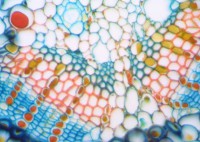
You have many options for receiving treatment for your cancer, and the use of probiotics may be one companion treatment you’d want to investigate.
The link between cancer and probiotics is still being assessed by researchers, but there’s evidence that this “good” bacteria often found in a healthy gut may lessen the often damaging side-effects of chemotherapy.
About probiotics
Probiotics are live-culture organisms like bacteria and yeast, which grow naturally in our body’s digestive systems. Although the word “bacteria” may sound risky (think about all the antibiotics prescribed for various ailments), when processed correctly these organisms actually contribute to a healthier gut and a boosted immune system.
Cancer and probiotics
Probiotics’ benefits to the immune system is particularly relevant in terms of cancer treatment. If you have undergone chemotherapy, you know that this treatment works by seeking out and killing not just the cancerous cells, but fast-growing cells of all descriptions – that’s why you lose your hair.
And among other targeted cells are the ones that contribute to your immune system. When those are killed off, you risk infection. So a regimen of probiotics may help keep your immunity stronger during and after chemo.
Forms of probiotics
Because they are a supplement and not a drug, probiotics are widely available over the counter, added into products like yogurt, chocolate and granola bars. You can also find probiotics capsules.
Probiotics can become part of an alternative or holistic cancer treatment program. But before jumping into probiotics on your own, make sure to check with your cancer team at Issels for their recommendations and program.





